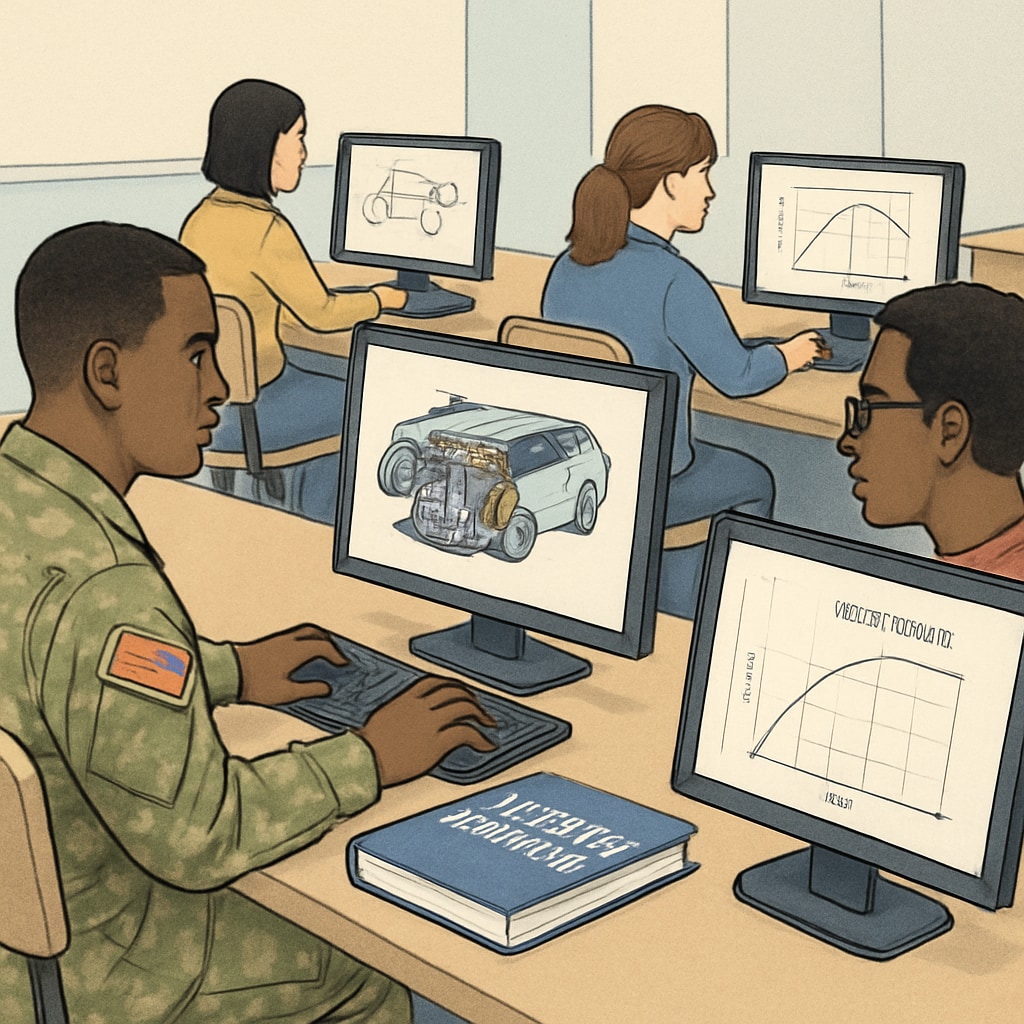Transitioning from an associate degree in automotive technology to a bachelor’s degree can be a pivotal step for military personnel looking to broaden their career opportunities. Understanding how credit transfer works and selecting the right bachelor’s degree program are essential components of this educational journey. In this article, we outline strategies for optimizing credit transfer and explore degree options that align with automotive technology expertise, helping military learners make informed decisions about their future.
Understanding Credit Transfer: A Key Step in Educational Advancement
One of the most critical factors for military personnel seeking to upgrade their associate degree to a bachelor’s degree is the efficient transfer of credits. Credit transfer allows students to apply previously earned credits toward their next degree, saving time and money. Many colleges and universities offer articulation agreements (formal credit transfer arrangements), making the process smoother for military learners.
To successfully transfer credits, start by researching schools that accept automotive technology credits and have dedicated programs for military personnel. Institutions such as University of Phoenix and American Public University are known for accommodating military students and offering flexible online options. Ensure the institution you choose is accredited and has a strong track record in supporting credit transfer.

Top Bachelor’s Degree Options for Automotive Technology Graduates
While automotive technology provides a solid technical foundation, pursuing a related bachelor’s degree can open the door to leadership roles, advanced technical positions, or even opportunities in business and management. Below are some bachelor’s degree options that align well with an associate degree in automotive technology:
- Automotive Engineering Technology: Focuses on the design, development, and testing of automotive systems, ideal for those interested in technical innovation.
- Mechanical Engineering: A broader engineering field that encompasses automotive principles and offers diverse career paths.
- Business Administration: Perfect for those aiming to transition into management roles within the automotive industry.
- Industrial Technology: Combines technical knowledge with practical applications in manufacturing and operations.
Each of these programs offers unique advantages. For example, automotive engineering technology emphasizes specialized skills, while business administration caters to leadership and strategic decision-making. Consider your career goals and interests when choosing a program.

Leveraging Military Education Benefits for a Seamless Transition
Military personnel often have access to education benefits such as the GI Bill, tuition assistance programs, and scholarships from veteran-friendly institutions. These benefits can significantly reduce the financial burden of pursuing a bachelor’s degree and may even cover additional costs like books and supplies.
Additionally, many schools offer military-specific support services, including mentorship programs and career counseling. Such resources can be invaluable for navigating the transition from associate to bachelor’s degree while balancing military commitments.
As a result, leveraging these benefits not only helps military learners achieve their educational goals but also ensures a smoother integration into civilian career paths.
Practical Tips for Planning Your Educational Journey
To optimize your transition from an associate degree to a bachelor’s degree, follow these practical tips:
- Research Accredited Institutions: Choose schools with strong articulation agreements and a reputation for supporting credit transfers.
- Define Your Career Goals: Align your bachelor’s degree choice with your long-term career aspirations.
- Leverage Military Benefits: Fully utilize programs like the GI Bill and tuition assistance to minimize costs.
- Consult Academic Advisors: Seek guidance from advisors experienced in military education transitions.
By taking these steps, military personnel can ensure they select a program that aligns with their experience, interests, and career objectives.
In conclusion, transitioning from an associate degree in automotive technology to a bachelor’s degree is an excellent way for military personnel to expand their educational credentials and open new career opportunities. With careful planning, effective use of credit transfer, and leveraging military education benefits, this journey can be both rewarding and transformative.


